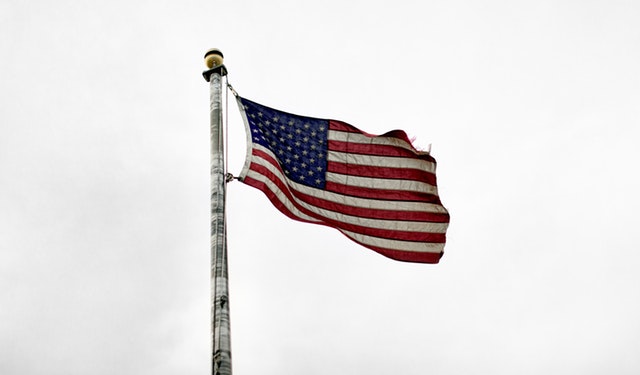
Visas and Immigration System
Over the past year, the Trump administration has called for a reduction in legal immigration to the US, arguing that immigrants “take away American jobs.” To do so, he has put extreme visa vetting initiatives into place, proposed the RAISE Act, and called forth certain visas for reductions. However, with a decrease in the number of immigrants in the US, many have argued we not only need to keep immigrants who are already here, but to bring in more immigrants.
Merit Based System:
One of the main proposals made by President Trump this past year has been to move to a merit-based immigration system. The administration has claimed that immigrants take away jobs that could otherwise go to Americans. Therefore, immigration should be limited to the most qualified and skilled foreign individuals.
One plan to do so took shape in the proposed RAISE Act. Announced in August by President Trump, and Senators Tom Cotton (R-AK) and David Perdue (R-GA), this bill proposes a cut in legal immigration by half. The goal of the RAISE Act would be to implement a very strict merit-based system that would significantly decrease the number green cards issued to low-skilled immigrants and family-based immigrants to the US. However, the proposed legislation has faced and may continue to face a lack of congressional support, as challenges could include economic consequences and a rise in illegal immigration.
Many business owners and employers have emphasized not only the need for low-skilled workers in the US, but an increase in the number of immigrants to the US in general. They argue that these immigrants are necessary for economic prosperity, especially in certain regions and industries. Even in the Senate, some supporters of a merit-based system see flaws and risks to cutting legal immigration so drastically.
J -1:
In August 2017, the Trump administration was considering making cuts to the J-1 cultural exchange program, which allows short-term seasonal workers like au pairs, camp counselors, and summer resort workers to work temporarily in the US. While no formal change has been made, businesses and families who employ foreign workers on the J-1 visa worry this could hurt them economically, as well as the workers themselves.
Travel: Plans and Bans
As of December, the Supreme Court has allowed Trump’s third proposed travel ban to go into effect. This ban, introduced in September, places restrictions of varying levels on people from Chad, Iran, Libya, North Korea, Somalia, Syria, Venezuela, and Yemen. Earlier bans were shut down, as they showed a clear focus on and discrimination against Muslims, violating the US Constitution. Many view the addition of North Korea and Venezuela to the new list as a plan to alleviate concerns that the ban was only on Muslim countries. North Korea already was extremely restricted on entry to the US, and Venezuela will only experience sanctions on certain government officials and their families. There are a great deal of questions and much dissent surrounding the intent behind some of the countries being included.
On January 27th, Trump issued the executive order banning entry for 90 days by citizens from Iraq, Iran, Syria, Somalia, Libya, Sudan, and Yemen. This order sparked protests, extreme criticism, and blocks throughout the country. On February 2nd, the restrictions were eased and US legal permanent residents from these countries were again permitted to enter under the Global Entry program if they were considered low-risk. On March 6th, the second travel ban was announced, removing Iraq from the list but banning foreign nationals from the other 6 states from entering for 90 days, and refugees for 120 days. This ban also faced blocks, and sparked chaos at airports nationwide. One group that has countered these bans all along are tech companies. They feared the order would hinder their ability to attract talent, hire, and retain some of the world’s most highly skilled employees.
Deportations and Programs Ending
DACA
One of the most contentious immigration-related issues of this year came when the Trump administration halted acceptance of new DACA applications received after September 5. Protections still remain in effect for current recipients, as work permits issued under DACA will be honored until expiration, along with applications received by September 5th and renewal applications received by October 5. Lawmakers have been working on proposals that work to protect Dreamers (those who are DACA recipients), which would need bipartisan support to pass by March 5, the deadline to end protections. Both parties are widely supportive of developing a solution to the issue of DACA, but what approach to take is still divisive. Despite protections and what the administration deemed a minimally disruptive “phase-out” approach, many Dreamers were unable to renew their applications due to finances or inaccessibility, particularly for those residing in areas like Texas and Florida that were impacted by hurricanes.
Temporary Protected Status
In October and November, Temporary Protected Status was ended for individuals from Nicaragua and Haiti. As of November 20, Elaine Duke, Acting Secretary of Homeland Security, continued protections for Hondurans. An announcement will be made by January on the Temporary Protected Status of Salvadorans, who are the largest group of beneficiaries. Temporary Protected Status is a humanitarian program that allows entry for individuals who cannot live in their home countries for reasons like war, natural disasters, or other catastrophes. The Department of Homeland Security has determined that conditions in Haiti after the 2010 earthquake, and Nicaragua after the 1998 Hurricane Mitch, are stable enough to receive back their citizens, though many fear the conditions are still precarious. Some recipients have lived in the US for decades, both legally and illegally, so the prospect of leaving the familiar presents an uncertain future.
Those protected under the program have six months after their permission expires to leave the country. Once protections do expire, immigrants and their families could be subject to deportation.






